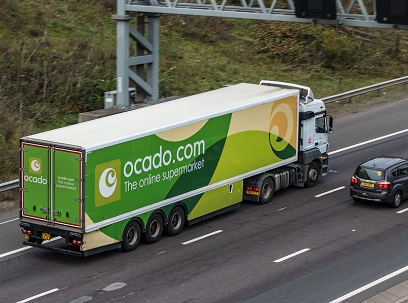You’ve probably heard the statement ‘collaboration is the new competition’ bandied about. I definitely have over the last few years. But it seems this ideal is finally coming to fruition in some very real ways. The truth is that most retail businesses don’t have the resources – capital, talent, etc. – to ride the next technological wave. Particularly when their competitors move from being other retailers to startups and digital-first businesses with entirely different business models
, ones that value growth over profit, and therefore invest heavily in R&D. By this, I mean R&D that is purely focused on achieving a technological advantage, not re-fitting or expanding stores.
In response, traditional retail businesses – like Kroger, Walmart and even Coles – have looked to partnership and collaboration in order to lean into this future. In many ways, that makes a lot of sense, but it is also creating a healthy level of co-dependence – and that may not be so great.
Ocado shows the way forward
Let’s start with Kroger. Why? Because Coles’ recent moves seem to be following in Kroger’s footsteps in very quick succession. Kroger is America’s largest supermarket by revenue with 3017 locations. For those of you thinking about Walmart – they are a general retailer – and Kroger is number two to Walmart in this category.
At the end of last year, Kroger announced a partnership with Ocado, an online-only supermarket in the UK that is now making a mint on its expertise in the fulfilment of fresh food orders. The Kroger deal will see Ocado build a grand total of 23 automated warehouses to support the American retailer’s online grocery business.
The partnership also provides a lucrative way for Ocado to grow outside the UK, as the contract calls for it to not only deploy but also maintain the equipment. As an indication, the first three warehouse facilities will cost approximately £90 million pounds (A$165.45 million).
Ocado’s deals with traditional retailers, which as of last month, now include Coles, reflects the fact that retail businesses are thinking about themselves as platforms for other businesses, not just sellers to consumers.
It’s worthwhile noting that this is not Kroger’s first foray into partnership; they collaborate with Alibaba, Walgreens, Instacart and an innovation lab with the University of Cincinnati. This is a business that is building its advantage through its ability to partner with others.
Next up, Coles
So, how does Coles stack up against this collaboration over competition trend? Just over a week after it announced a partnership with UberEats to test on-demand delivery in urban locations (obviously at a price premium), it announced a huge deal with Ocado.
The deal equates to a $150 million spend over four years on the part of Coles, and it’s pretty much the same deal that the British online grocery business did at the end of last year with Kroger. Ocado will set up and maintain automated warehouses so that Coles can grow its online business. As part of the deal, Coles will migrate onto Ocado’s online platform.
This sounds all very familiar, and I feel like the big winner in all of this is…Ocado.
The company isn’t just enabling collaboration, it’s creating a ‘healthy’ level of co-dependency. As an aside, Ocado has done the same deal with Sobeys in Canada and Casino in France.
How to sweat your investment
The model Ocado employs is very close to that of Amazon. It’s called PaaS, or ‘platform-as-a-service’. This is where you look at things you already do that other businesses might also find valuable – and do it for them. This moves from collaboration to co-dependency when the value exchange is simply money.
In the case of Amazon, it started with giving other businesses access to their back-end technology through AWS, and now it pretty much involves everything through to voice with Alexa. Ocado, in a similar way, is sweating its investment. The retailer probably has the greatest level of intelligence in online supermarket fulfilment and delivery, and instead of keeping it to themselves, they are sharing it to make revenue back on their delivery platform.
A final thought, the future of retail is most definitely collaboration, but the value exchange should be equal, or it is straight up co-dependency.
Pippa Kulmar is the co–director of RetailOasis, a business consultancy dedicated to creating the future of retail.

